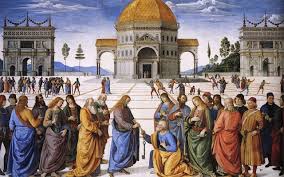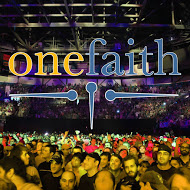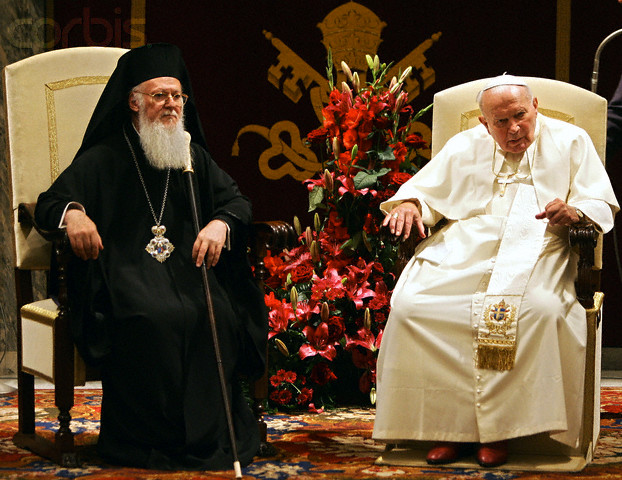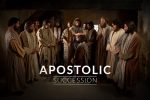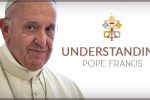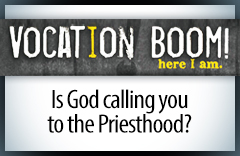Politics and Religion Pt. 6 – “Religious Liberty”

Free will is at the very core of the message of the entire Bible. In my book, Behold Your Mother – A Biblical and Historical Defense of the Marian Doctrines, in the chapter (12) entitled, “Other Redeemers? Understanding God’s Plan of Salvation,” which is a lead-in to chapter 13, “Mary’s Saving Office,” I explain:
Catholics believe man was constituted by God as naturally and essentially free, and that this freedom is not destroyed when a man comes to God through Christ. We say that grace never destroys nature; rather, it heals and perfects it. And this freedom is precisely what we see in Scripture. From God’s commandment to Adam in Genesis 2:17 not to eat “of the tree of the knowledge of good and evil” lest he die, to God’s word to Israel in Deuteronomy 30:19 to choose between life and death, to our Lord telling us in Revelation 3:20, “Behold, I stand at the door and knock; if anyone hears my voice and opens the door, I will come in to him,” the Bible is clear: Man is free either to accept or reject God’s call to follow him…
Our Lord himself removed all doubt concerning man’s freedom when he revealed that as God from all eternity he willed to gather “Jerusalem” as his own, but they refused him:
Jerusalem, Jerusalem, killing the prophets and stoning those who are sent to you! How often I would have gathered your children together as a hen gathers her brood under her wings, and you would not (Matt. 23:37)!
Freedom vs. Coercion
It is because of the centrality of freedom in matters religious that coercion (excepting where free commitments have been made and duties assumed) has always been condemned by the Church. In fact, the infamous forced baptisms of some Jews in the Middle Ages were not only condemned by the Church, but led the Church to consider in a deeper way the absolute necessity of intention on the part of adult converts to be baptized. What constitutes “intention” was debated, but the necessity of intention in adults was clarified as being essential Catholic teaching. As St. Thomas Aquinas stated it in The Summa Theologiae, Pt. 3, Q. 68, Art. 7, Reply to Obj. 2:
If an adult lack the intention of receiving the sacrament, he must be re-baptized.
Today, the Code of Canon Law, Can. 865 §1, decrees:
For an adult to be baptized, the person must have manifested the intention to receive baptism, have been instructed sufficiently about the truths of the faith and Christian obligations, and have been tested in the Christian life through the catechumenate. The adult is also to be urged to have sorrow for personal sins.
What’s Love Got to do with it?
CCC 1861 sums up the importance of freedom when it declares: “Mortal sin is a radical possibility of human freedom, as is love itself.”
It doesn’t get any more important than love. And yet, without freedom, the Catholic Church teaches, there simply is no love at all.
I like to think of this truth by way of the analogy of marriage. If a man has a gun to an unwilling woman’s head on their wedding day, would that be love? I think not! Why? Because the freedom that is the foundation of love is lacking.
Thus, free will is not just an abstract concept for Catholics. Free will is sacred. And because it is sacred, this is precisely why the Obama administration’s attempt to force Catholic Christians (or any person of good will) to act contrary not only to their divinely revealed Faith, but to basic points of the Natural Law, like, “Thou shalt not kill,” is so egregious. The idea that Catholics are being forced to pay for reprehensible things like contraception, sterilization, and even abortion, is outrageous.
Thus, “Religious Liberty” is our sixth “non-negotiable” when it comes to a truly Catholic perspective on religion and politics. All of us must rally to the cause. And that means first we must resist in every lawful way we can the intrusion upon religious liberty we see coming from Washington, D.C. This, along with the violation of the other “non-negotiables” we have discussed, is leading the United States of America toward the abyss at an ever-increasing pace.
Secondly, it means all of us must vote for candidates who will protect religious liberty. It seems unbelievable that we even have to say this in a country that at least used to understand religious liberty to be central to who we are as a people. But given the last two presidential elections, it obviously must be stated again, and again, and again.
Vatican II was Prophetic
Anyone who knows me, knows I am a huge fan of the documents of Vatican II. All 16 of them. In Dignitatis Humanae (the Declaration on Religious Freedom) 2, we find one among many profound and truly prophetic declarations from the Council:
This Vatican Council declares that the human person has a right to religious freedom. This freedom means that all men are to be immune from coercion on the part of individuals or of social groups and of any human power, in such wise that no one is to be forced to act in a manner contrary to his own beliefs, whether privately or publicly, whether alone or in association with others, within due limits.
The council further declares that the right to religious freedom has its foundation in the very dignity of the human person as this dignity is known through the revealed word of God and by reason itself.(2) This right of the human person to religious freedom is to be recognized in the constitutional law whereby society is governed and thus it is to become a civil right.
It is in accordance with their dignity as persons-that is, beings endowed with reason and free will and therefore privileged to bear personal responsibility-that all men should be at once impelled by nature and also bound by a moral obligation to seek the truth, especially religious truth. They are also bound to adhere to the truth, once it is known, and to order their whole lives in accord with the demands of truth. However, men cannot discharge these obligations in a manner in keeping with their own nature unless they enjoy immunity from external coercion as well as psychological freedom. Therefore the right to religious freedom has its foundation not in the subjective disposition of the person, but in his very nature. In consequence, the right to this immunity continues to exist even in those who do not live up to their obligation of seeking the truth and adhering to it and the exercise of this right is not to be impeded, provided that just public order be observed.
How prophetic indeed in view of what is happening around the world with Christians being persecuted as never before. How prophetic in view of what the Obama administration is doing to Christians–most especially Catholic Christians–even as we speak, with the infamous HHS Mandate.
A Catholic Contradiction?
I must pause here a moment and note the objection some make to the above-cited declaration from DH 2 (that’s what you get when you read an apologists’ blog!). The claim is made that this and other similar statements from the Council contradict earlier Magisterial teachings of the Church that condemn “religious freedom,” and so, must be considered heretical.
And one can certainly see how a surface reading of Magisterial statements like this one from Pope Gregory XVI could be so construed:
This shameful font of indifferentism gives rise to that absurd and erroneous proposition which claims that liberty of conscience must be maintained for everyone. It spreads ruin in sacred and civil affairs, though some repeat over and over again with the greatest impudence that some advantage accrues to religion from it. “But the death of the soul is worse than freedom of error,” as Augustine was wont to say. When all restraints are removed by which men are kept on the narrow path of truth, their nature, which is already inclined to evil, propels them to ruin. Then truly “the bottomless pit” is open from which John saw smoke ascending which obscured the sun, and out of which locusts flew forth to devastate the earth. Thence comes transformation of minds, corruption of youths, contempt of sacred things and holy laws–in other words, a pestilence more deadly to the state than any other. Experience shows, even from earliest times, that cities renowned for wealth, dominion, and glory perished as a result of this single evil, namely immoderate freedom of opinion, license of free speech, and desire for novelty (Pope Gregory XVI, Encyclical Letter, Mirari Vos, 14, Aug. 15, 1832).
Pope Leo XIII, in his Encyclical Letter, Libertas, 42, June 20, 1888, is also used to this end:
From what has been said it follows that it is quite unlawful to demand, to defend, or to grant unconditional freedom of thought, of speech, or writing, or of worship, as if these were so many rights given by nature to man. For, if nature had really granted them, it would be lawful to refuse obedience to God, and there would be no restraint on human liberty. It likewise follows that freedom in these things may be tolerated wherever there is just cause, but only with such moderation as will prevent its degenerating into license and excess. And, where such liberties are in use, men should employ them in doing good, and should estimate them as the Church does; for liberty is to be regarded as legitimate in so far only as it affords greater facility for doing good, but no farther.
Two points in Response
1. These declarations of the Holy See condemn absolute religious freedom without the constraints of Natural Law and Church authority. This is essentially different from what DH is speaking about. Notice, DH 2 includes key phrases like, “within due limits,” and “provided that just public order be observed,” to emphasize limitations on religious liberty. There is not even a hint of its approval of what Pope Leo XIII called “unconditional freedom…”
2. The Council Fathers were careful to define what the Church means by “religious freedom” in the context of DH.
This Vatican Council declares that the human person has a right to religious freedom. This freedom means that all men are to be immune from coercion on the part of individuals or of social groups and of any human power…
By “religious freedom,” the Council meant men “are to be immune from coercion.” This is absolutely consonant with Catholic teaching.
And notice as well the Council spoke of the evil of coercion by human power. This in no way means man is not bound by God’s law, or by divine authority. That was not even a consideration here.
And this is not to say God, or any divine authority, coerces either when it comes to man responding to God’s gracious invitation to come to him. God has given man freedom to either choose him or reject him. But it is to emphasize the context of DH. The fathers of the Council were responding to the problem of earthly despots or any political authority that would attempt to coerce with regard to matters religious.
Did Vatican II Condemn the Idea of “Catholic Nations?”
The claim is made also made that this alleged “unconditional freedom” taught by Vatican II ipso facto rejects the idea of a truly Catholic nation giving preferential treatment to the true Faith. This would be in stark contrast to the Magisterial teaching of Pope Leo XIII, for example, in his Encyclical Letter, Immortale Dei, 34, of Nov. 1, 1885:
Thus, Gregory XVI in his Encyclical Letter Mirari Vos, dated August 15, 1832, inveighed with weighty words against the sophisms which even at his time were being publicly inculcated-namely, that no preference should be shown for any particular form of worship; that it is right for individuals to form their own personal judgments about religion; that each man’s conscience is his sole and all-sufficing guide; and that it is lawful for every man to publish his own views, whatever they may be, and even to conspire against the State. On the question of the separation of Church and State the same Pontiff writes as follows: “Nor can We hope for happier results either for religion or for the civil government from the wishes of those who desire that the Church be separated from the State, and the concord between the secular and ecclesiastical authority be dissolved. It is clear that these men, who yearn for a shameless liberty, live in dread of an agreement which has always been fraught with good, and advantageous alike to sacred and civil interests.”
Pope Pius IX, in his Encyclical Letter, Quanta Cura, 3, Dec. 8, 1864, joins the chorus in condemning the notion:
… that a right resides in the citizens to an absolute liberty, which should be restrained by no authority whether ecclesiastical or civil, whereby they may be able openly and publicly to manifest and declare any of their ideas whatever, either by word of mouth, by the press, or in any other way.
Of course, Vatican II’s Dignitatis Humanae, in no way advocates for this condemned notion of “absolute liberty.” So once again, the attack leveled at Vatican II is without merit. DH, or Vatican II in general for that matter, never says states have no right to establish themselves as truly Christian nations, or to grant a privileged status to God’s true Church on earth. The “rights” DH are concerned with are rooted in a freedom from coercion that is in complete harmony with a Catholic understanding of the moral law that has been taught all the way back to our Lord and Master himself as stated above.
Dignitatis Humanae is Prophetic
DH is indeed prophetic in that it approaches the topic of liberty from a different vantage point than the above-mentioned Pontiffs. The earlier Popes were arguing from the perspective of trying to either preserve or restore the idea of a “Christendom,” or, at least, Christian nations that preserve the Faith and the moral law as properly understood by the Church as part of their respective Constitutions. And, of course, this is praiseworthy.
Vatican II comes from the perspective of the historical dissolution of Christendom. By 1960, Christian kings, or even Christian states, had become a distant memory — the stuff of history books. And today, we find ourselves, as Catholic Christians, far from ruling Catholic countries. According to an Amnesty International report in 2001, Christians are being persecuted in an unprecedented 149 nations of the world. And that number is probably even greater today.
Though the persecution in the early 1960’s was not what it is today, it was certainly on the rise with communism spreading around the globe. It was truly prophetic, facing the coming reality that we today are facing in an unprecedented way, when the Church at Vatican II asserted the Fundamental right of man to be free from the tyranny of coercion in his attempt to worship the true God as He revealed that worship to be offered in Jesus Christ and his One, Holy, Catholic, and Apostolic Church. And, in the process of asserting this perennial and unchangeable truth, the Church also heralded its veracity not just for Catholics, but the entire world. The freedom from coercion in religious matters, “within due limits,” as the Council made clear, is not a Catholic only club. This is a truth rooted in “the laws of nature, and of nature’s God.”
Final Thought
When we consider the magnitude of the issues involved when we speak the words, “religious freedom,” the words of the Council become all the more crucial for us to take to heart both today, and as we move forward toward darkening clouds on the horizon.
As we come to the close of 2014, I must say it has been absolutely unbelievable to me to watch our country’s leaders, in a nation once founded on the principle of freedom of religion, turn their legislative guns on the Church in ways unthinkable just 25 years ago. This administration, in particular, the Obama administration, has done more to take away our rights than perhaps any other in our history. And yet, so-called “Catholics” basically put him in office in both of his elections.
Of course, as Pope St. John Paul the Great famously stated in his Apostolic Exhortation, Christifidelis Laici, 38:
Above all, the common outcry, which is justly made on behalf of human rights-for example, the right to health, to home, to work, to family, to culture- is false and illusory if the right to life, the most basic and fundamental right and the condition for all other personal rights, is not defended with maximum determination.
When the United States of America has legalized murder in the womb, is it really a surprise when it starts taking away basic rights to freedom from coercion in religious matters?
I suppose not.
Over these last six blog posts, we have spoken quite directly about abortion, Euthanasia, Embryonic Stem-cell research, cloning, homosexual “marriage,” and more, all of which are being practiced or experimented with all over the United States and around the world.
But even this is not really surprising. Once you reject the creator as our nation has over these last several decades there is no where else to go but toward the chaos of lawlessness and ultimate despair.
But what is most surprising is the level of ignorance among Catholics as to just what is happening right before our very eyes. What is most unsettling is the fact that Catholics (and Christians in general, I might add) have not represented the answer to the masses in need of the balm of Gilead. We have been a major part of the problem.
May God help us as a Catholic people to, “Awake O sleeper, and arise from the dead, and Christ shall give you light” (Eph. 5:14). We still have a real principle of redress in this country of ours. We can still vote. We can still get involved politically. And more importantly, we can still participate in the Holy Sacrifice of the Mass. This is the most powerful weapon for our spiritual warfare. There is nothing close.
If you enjoyed this post, I recommend you click here.

